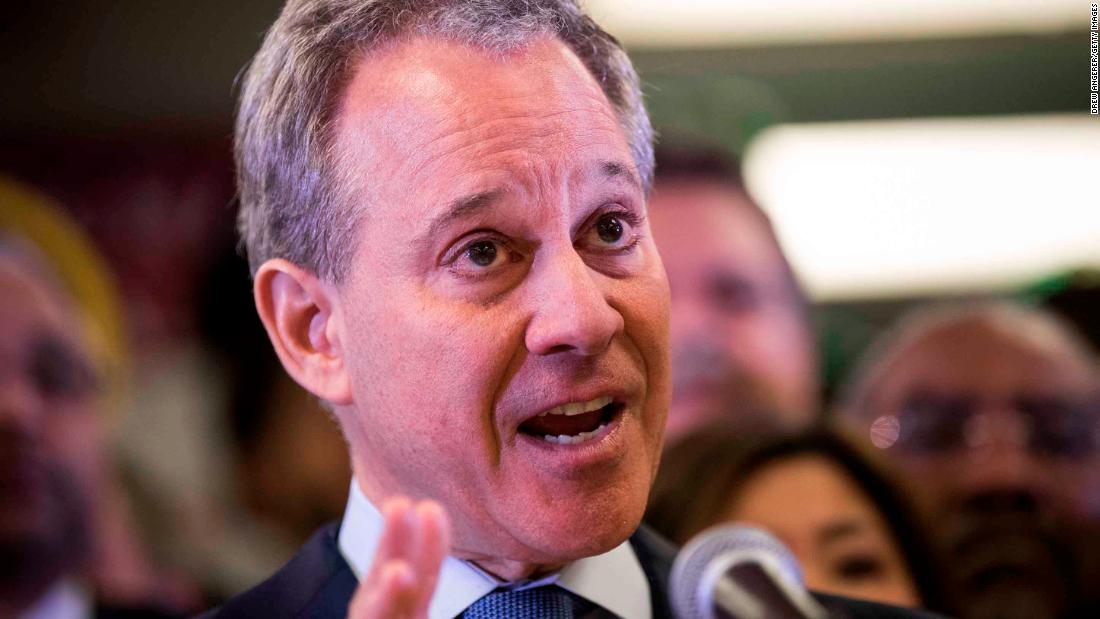[ad_1]
In doing so, he became the latest in a long line of male politicians, celebrities and journalists to be exposed and brought low by the burgeoning “Me Too” movement. From Minnesota Democratic Sen. Al Franken to Republican Reps. Blake Farenthold of Texas, Trent Franks of Arizona, Pat Meehan of Pennsylvania, and Democrats Ruben Kihuen of Nevada and John Conyers of Michigan, it feels as though not a week goes by without a new male politician bowing out of office amidst allegations of sexual misconduct.
1. Why does it keep happening — and with such regularity — in politics?
2. Why do some politicians who get caught quit while others — namely Trump — manage to soldier on?
The first question is easier to answer — so let’s start with that.
Politics is simply a microcosm of our broader society. It’s a cross-section of who we are. And, unfortunately, there are men in this country who engage in deplorable acts of physical and mental abuse toward women.
Are there a disproportionate amount of these sorts of men in politics? It’s very hard to say with any authority. But, here’s what we do know: The culture and power dynamics that surrounds politics are absolutely conducive to attracting men who exhibit this sort of behavior.
If you’ve ever spent five minutes in the House or Senate, you are immediately struck by the reverence with which even the most junior member of the House is treated. Members are trailed by a coterie of (mostly young) staffers, all of whom work slavishly long hours for minimal pay — in support of their dream of making it — or making a difference — in politics.
The sense of entitlement — and power — that comes with elected office is a dangerously addictive concoction for many politicians, who tend to seek office out of, yes, a desire to serve the public, but also a personality that craves attention and adulation. They like being feted, being treated by the staff who work for them as all powerful — as beyond reproach.
And that cycle creates people like Schneiderman. On its face, his situation seems entirely un-tenable.
How could Schneiderman be so hypocritical? Because politicians are expert compartmentalizers. And some, like Schneiderman, have deluded themselves into thinking this is all totally OK. In his mind — and even in his resignation statement — the allegations all related to his private life and had nothing to do with his professional conduct. He had boxed away his monstrous conduct in his private life and didn’t view it as having any connection at all to his public persona. Which is, of course, ridiculous.
Now to the second — and harder to answer– question: How do some politicians survive these allegations?
Trump is the ur-example of this phenomenon. Despite being caught on tape saying “When you’re a star, they let you do it … You can do anything” and despite facing more than a dozen allegations of inappropriate sexual behavior, Trump not only survived but thrived — winning a presidential election in which most people believed he had no chance.
Why? For one thing, Trump denied all the allegations and refused to quit. In fact, he turned the allegations in his political favor — arguing they were a creation of the liberal left — and the complicit media — designed to keep him from winning. Somehow the varied allegations became yet another arrow in Trump’s quiver — shooting and shooting and shooting at the status quo and political correctness.
But, most importantly, Trump survived because the voters let him. Exit polling suggests that although they didn’t condone Trump’s behavior or think he was terribly presidential, they just cared about other things — shaking up the system, their distaste for Hillary Clinton — more.
Trump dared voters to throw him out for his conduct — and they blinked. Very few politicians are willing to subject their family to such scrutiny solely to save their political office but, as Trump proved, if you are willing to just stick it out and stick it out and put the burden for getting rid of you on someone else, you may well survive. Bill Clinton also proved this when he survived impeachment in the late ’90s.
Most, however, go the route of Schneiderman — bow out and fight on the legal front, without the bright lights of public life shining on you and your family.
Sadly, Schneiderman won’t be the last politician who says one thing in public about women and how they should be treated and does something very different in private. This sort of behavior appears to be a feature of modern political life, not a glitch.
[ad_2]
Source link

